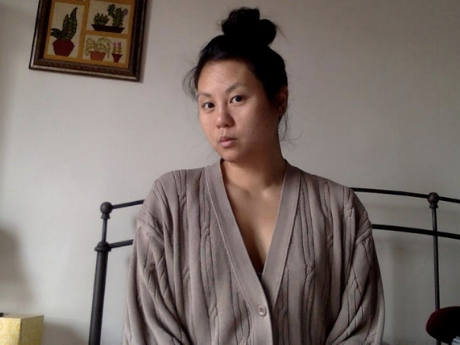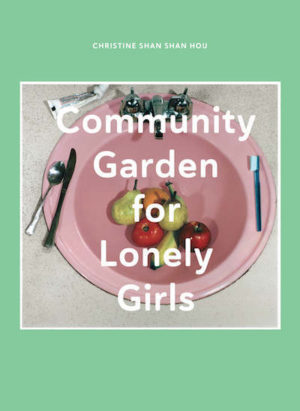In Their Own Words
Christine Shan Shan Hou on “Masculinity and the Imperative to Prove It”

Masculinity and the Imperative to Prove It
You must wait thirty minutes after eating
before swimming or running around the mall.
I did it once and threw up everywhere.
Not from playing 'Mother May I' or
from shopping.
What did you say?
Sad salad. A sad fish in a salad.
All rights reserved. Reprinted with the permission of the author.
On "Masculinity and the Imperative to Prove It"
When I was a child, my grandparents owned a Chinese restaurant called Oriental Court inside of a shopping mall. Every Saturday night my entire paternal family—grandparents, all of their children and all of their children's children—would eat dinner after the mall's closing hours. After the meal, me, my siblings, and my cousins would excitedly run around the empty mall and play all sorts of games including: "Red Light Green Light," "Red Rover" "What Time is it Mr. Fox?" and "Mother May I." However, the golden rule (as voiced by my stern Uncle) was that we had to wait at least thirty minutes after eating before engaging in any physical activity, or you would get sick.
When I was a young girl, I was often ashamed of my body. I used to wish that I were "white" so that I could fit in with the popular crowd; I would make myself throw up because I thought I was fat; and I would view any other medical abnormalities, particularly in relation to my reproductive organs, as a reflection of moral shortcomings. In other words, I was a very sad child.
Involuntary bodily functions and reactions appear in many of my poems—vomiting, bleeding, bloating, fungal infections, etc. I am interested in all the parts of the body that you cannot see or touch, and that oftentimes illicit disgust or repulsion. In directly addressing these ailments, I feel like I am actively reclaiming my female body's history and identity.
"Masculinity and the Imperative to Prove It" begins with a cheerful, nostalgic childhood experience, but then quickly shifts into something darker: a sad girl that has grown up to eat sad tuna salads for lunch.



